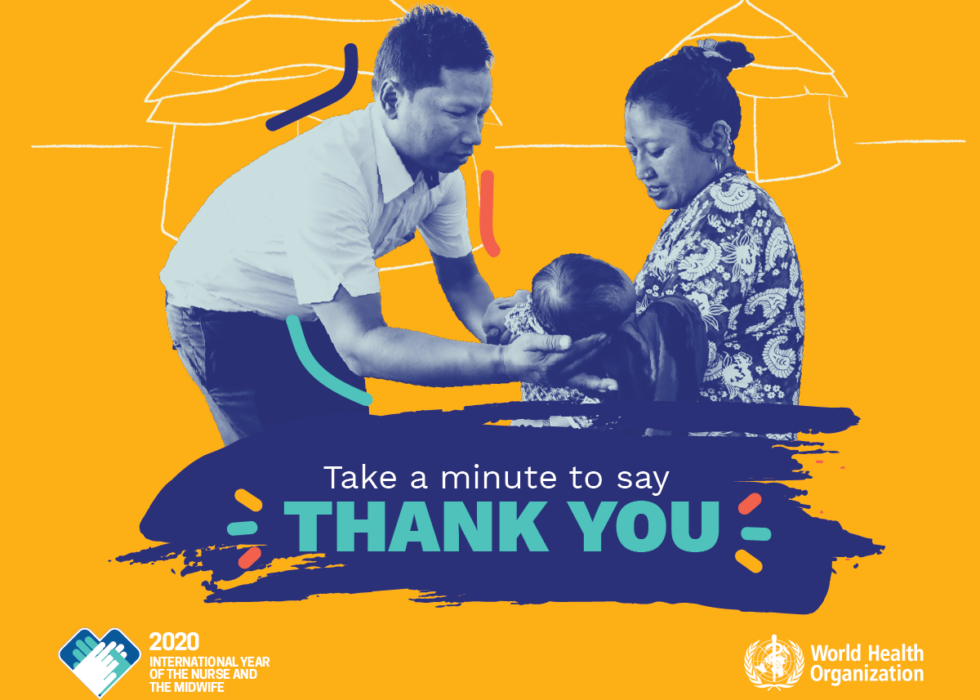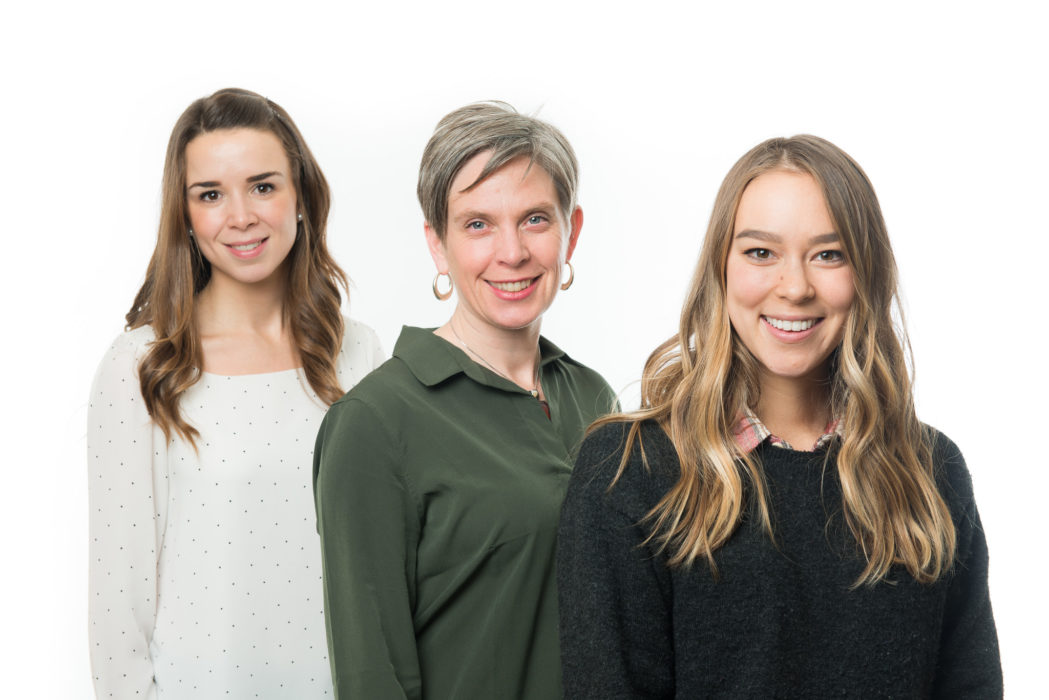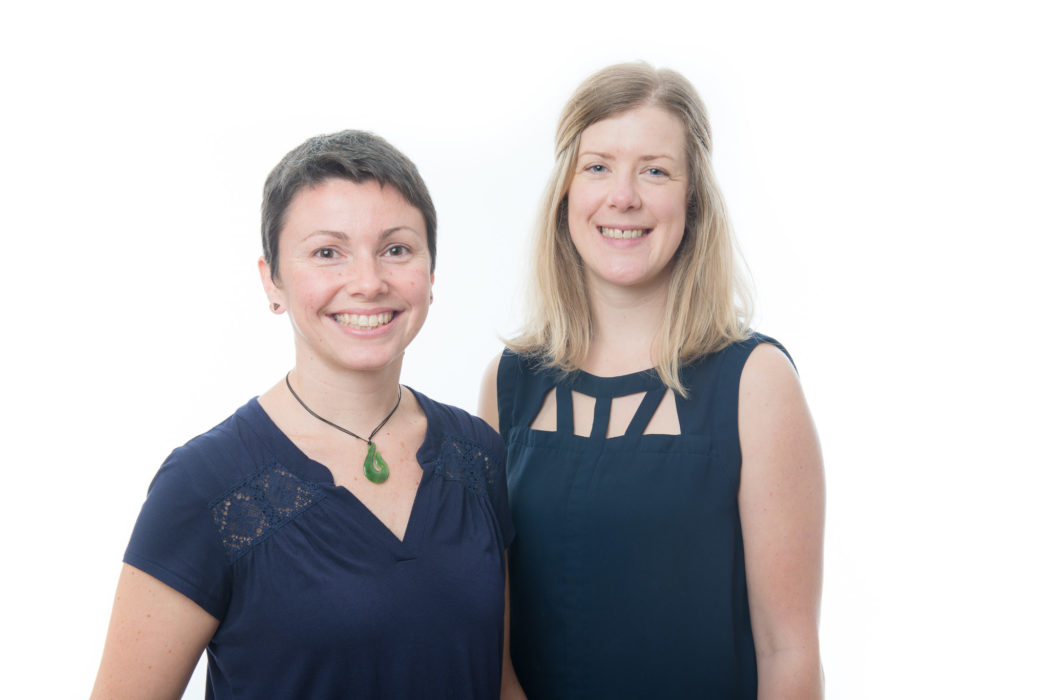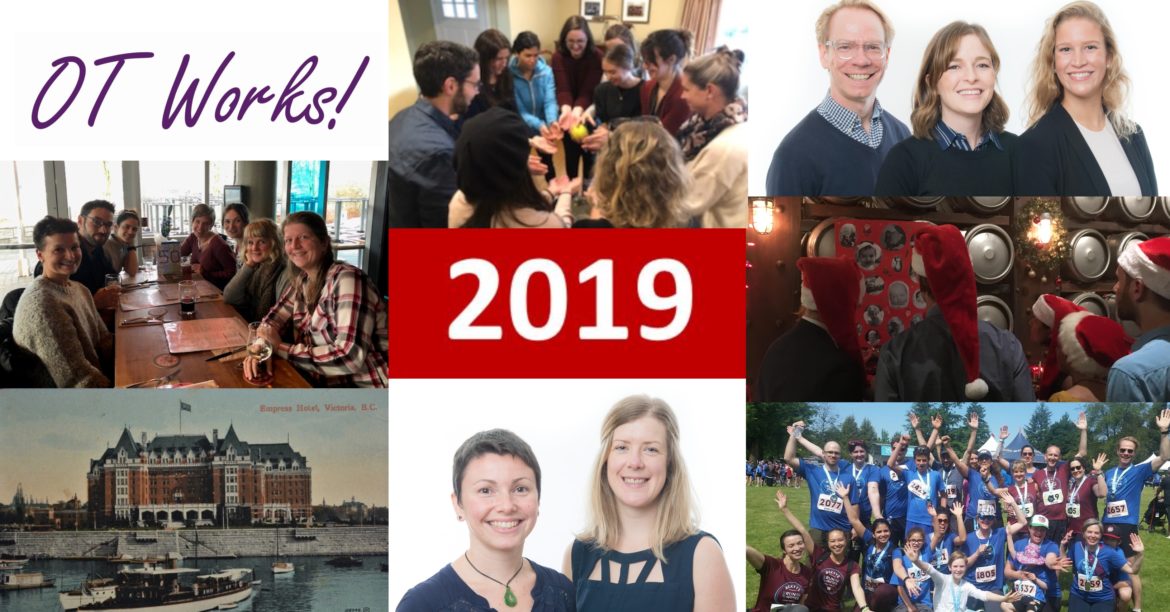Mental Health Week 2020: #GetReal
OT Works! is proud to acknowledge Mental Health Week. We would like to #GetReal and celebrate the efforts of all the healthcare professionals and people who are providing support during this COVID-19 period of occupational disruption.
Our occupational therapists provide clients with recommendations to manage their mental health and thrive. They can help you do what you need and want to do while working with current physical distancing measures in place in British Columbia.
Together, we can get through this period of occupational disruption, encourage healthy coping strategies, and end the stigma around mental health.
Learn More
Canadian Mental Health Association
World Health Day: Thank You Nurses and Midwives
April 7, 2020 is World Health Day. OT Works! is proud to celebrate the work of nurses and midwives in British Columbia and around the world.
Nurses and midwives are at the forefront of the COVID-19 response. They provide high quality, respectful treatment and care. We are grateful for their effort in keeping the world healthy and will continue to support their work in our own roles as allied healthcare providers.
For more information, visit World Health Day 2020.
Telehealth
When clients can access few other services, occupational therapy via telehealth is a vital link to wellness.
About Telehealth
Telehealth refers to using electronic communications to manage a client’s health and wellbeing. OT Works! is delivering telehealth services during the COVID-19 outbreak. Care by telehealth is therapy that is:
- Provided via phone, email, text messages or video
- Live, private and confidential
- Guided by the College of Occupational Therapists of BC (COTBC) and the Provincial Health Services Agency (PHSA)
How OT can help with Telehealth
Telehealth allows clients to safely receive the prompt care they need while social distancing is required. Through telehealth, our therapists help clients:
- Maintain or improve workplace tolerances
- Develop a daily structure that simulates their typical (work) day
- Create healthy routines
- Increase resiliency
- Deliver health education
- Promote connection with the workplace and decrease isolation
OT Works! Telehealth Approach
OT Works! therapists provide a creative healthcare service that develops client-centered solutions that are:
- Cost Effective
- Customized to optimize outcomes (including remote session length and frequency)
- Tailored towards cognitive and emotional gains
- Focused on the long-term goals, including Return to Work
- Provided with integrity and therapeutic value
Services Considerations
The following services are difficult to deliver remotely, yet we have solutions to help:
- Home environment – possible with video technology
- Objective assessments of range of motion and strength – possible with video technology
- Functional assessments (e.g. transfers, stairs, community access) – inferred from client reports, questionnaires, camera observations and medical documentation
- Wheelchair or home safety assessment – if urgent, in-person assessments can be considered after completing a client risk assessment and while using personal protective equipment.
Get Started
All of our therapists at OT Works! are certified with the College of Occupational Therapists of British Columbia (COTBC) and have additional training in areas such as mental health, brain injury rehabilitation, home safety and chronic pain.
We’re here for you when you need us.
E-mail: info@ot-works.com
Phone: 604.696.1066 ext 1000
OT Works! is OPEN
OT Works! continues to serve clients and customers during the COVID-19 outbreak. We believe occupational therapy is essential to maintaining the health and wellbeing of the public. OT Works! is adapting to better support everyone – our clients, customers, therapists, staff and our communities – in the most responsible manner possible.
Telehealth
OT Works! is enabled by telehealth. Our occupational therapists can provide telehealth services by phone, email, text messages and video. Telehealth can allow live, confidential and safe interactions with an occupational therapist during times social distancing. We have developed protocols and plans that follow guidelines by the College of Occupational Therapists of BC (COTBC) and the Provincial Health Services Agency (PHSA). Our goal is to provide care through telehealth that is meaningful and appropriate.
We will continue to provide in-person home visits on an urgent basis.
Benefits of Telehealth
Telehealth is a vital link to wellness when clients have limited or no access other in-person services. For many of our clients, telehealth is the only service available to them after other health providers and rehab team members have closed their doors. Through telehealth, our OTs can provide clients with prompt and personalized care while maintaining social distancing.
Telehealth can help clients by:
- Maintain or improve workplace tolerances
- Develop a daily structure that simulates their typical (work) day
- Create healthy routines
- Increase resiliency
- Deliver health education
- Promote connection with the workplace and decrease isolation
Occupational therapy is client-centered. Our clients’ telehealth treatment plans are specific to individual needs and goals. While some rehab goals may not be accessible during times of social isolation (eg. return-to-work), telehealth maintains clients’ readiness for rehab upon return to in-person sessions.
Occupational therapists are creative and adaptive. With telehealth, our therapists are able to adjust the frequency and duration of sessions to provide appropriate and effective care during our current situation.
Telehealth allows us all to socially distance ourselves and prevent the spread of disease while still connecting, progressing on goals and maintaining well-being.
Service Areas
OT Works! continues to serve the following areas :
- Metro Vancouver
- Fraser Valley
- Sea-to-Sky (Squamish, Whistler, Pemberton)
- Vancouver Island
With telehealth, our occupational therapists can also assist clients outside of these geographic areas. Contact us to learn more.
Contact Us
All of our therapists at OT Works! are certified with the College of Occupational Therapists of British Columbia (COTBC) and have additional training in areas such as mental health, brain injury rehabilitation, home safety and chronic pain.
We’re here for you when you need us.
E-mail: info@ot-works.com
Phone: 604.696.1066 ext 1000
OT Works! and Your Safety
COVID-19 Update
The health and safety of our clients, occupational therapists, and staff is of the utmost priority. With the risk of coronavirus (COVID-19) spread in Canada, OT Works! is taking additional precautions and following recommendations and guidelines set out by the BC Center for Disease Control, Government of Canada and World Health Organization (WHO).
What OT Works! will do for you
Our occupational therapists will:
- Not visit you if they are ill or have been exposed to the virus
- Give you the option to switch to phone or video sessions (even if there is not an obvious risk at this time)
- Inform you if they develop symptoms or get a diagnosis of coronavirus within 5 to 15 days since your last visit together.
- Follow guidelines set out by the Center for Disease control to reduce risk of transmission (hand hygiene, respiratory etiquette, social distancing, self-monitoring and use of masks as needed).
What we ask of you
- Tell us if you are ill
- Tell us if you or have been diagnosed with, or exposed to the coronavirus
- Tell us if you develop symptoms or get a diagnosis of coronavirus within 5 to 15 days since your last visit
- Tell us if someone you are living wil becomes ill, has been diagnosed with or exposed to the coronavirus
- Clean frequently-used surfaces, if possible, to prevent the spread of disease
If you have fever, cough, headache, difficulty breathing, pneumonia or have recently travelled abroad, call your primary care provider or the BC Healthline (811). They will discuss with you the most appropriate setting for clinical assessment and, if warranted, testing.
For the latest recommendations and guidelines in our community, please visit the our regional health authorities (Vancouver Coastal Health, Fraser Health) and the BC Center for Disease Control.
Resources:
- Health Canada: https://www.canada.ca/en/public-health/services/diseases/2019-novel-coronavirus-infection.html
- BC Center for Disease Control: http://www.bccdc.ca/health-professionals/clinical-resources/novel-coronavirus-(covid-19)
- Vancouver Coastal Health (VCH): http://www.vch.ca/about-us/news/vancouver-coastal-health-statement-on-coronavirus
- Fraser Health Authority (FHA): https://www.fraserhealth.ca/health-topics-a-to-z/coronavirus
Meet Mathilde Bleuze & Bronwyn Cormack: Occupational Therapists
Welcome Mathilde Bleuze and Bronwyn Cormack to the OT Works! team. They provide community OT services for individuals with musculoskeletal/orthopaedic injuries, chronic pain, mental health, concussion/traumatic brain injuries and mixed diagnoses. They guide clients in managing their daily activities at home, work and in the community in order to foster increased independence.
Mathilde enjoys thinking outside of the box and supporting clients in their own environments. Originally an OT in France, she has a wealth of experience particularly in return-to-work planning, home safety and seating and mobility. Mathilde serves clients on Vancouver Island, particularly in the Comox Valley region.
Bronwyn finds that private practice allows for a dynamic work environment. She enjoys learning about the different roles people have in their communities. She provides workplace assessments, return-to-work planning and activation, among other services. Bronwyn serves clients in the Sea-to-Sky region, primarily North Vancouver to Whistler.
Like all of our therapists, Mathilde and Bronwyn are full registrants and in good standing with the College of Occupational Therapists of British Columbia (COTBC).
Get started with an OT
If you or someone you know could benefit from working with an occupational therapist, contact us today!
Email: referrals@ot-works.com
Phone: 604.696.1066 ext. 1000.
12 Science-Based Benefits of Meditation
Occupational therapy promotes increased independence while carrying out tasks and activities. Meditation is one way clients can train their minds to focus on what they can and will do.
Check out Healthline’s article here.
23 Healthy New Year’s Resolutions You Can Actually Keep
Develop healthier habits and reduce stress by trying Healthline’s goals. Make sure that you are realistic about what your goal entails so that you can effectively maintain the habit.
When choosing one of these goals, remember to make sure you plan them the SMART way.
- Specific – Know exactly what you want to accomplish.
- Measurable – Track your progress.
- Achievable – Outline the steps you will take to reach your goal.
- Relevant – Ensure the goal fits in with your current and upcoming needs.
- Time-Based – Choose a target completion date and set up check-ins along the way.
Get an OT’s Help
All of our OTs use goal-planning to develop effective and personalized treatment plans for their clients. Our OTs are university-trained and certified by the College of Occupational Therapists of British Columbia (COTBC). Many of our OTs have additional training in physical OT treatment, mental health, and goal-planning.
Contact us today if you or someone you know could benefit from goal-planning with an OT.
Email: referrals@ot-works.com
Phone: 604.696.1066 ext. 1000
2019 – OT Works! Year in Review
Helping Others, Growing, Learning, and Having Fun
As 2019 draws to a close, we reflect on how we have grown as a team and as a part of our wider community this past year. In 2019, OT Works! continued to grow, develop and have fun. We have been privileged to work with amazing people, customers and clients. We love occupational therapy and share our knowledge and skills with others.
- Growing Team and Families: We welcomed four occupational therapists to our team. Welcome Bronwyn, Mathilde, Jodie and Megan! Several of our OTs also welcomed new babies and we celebrate growing, healthy families!
- Vancouver Island: OT Works has expanded to serve Vancouver Island. We now serve Greater Victoria area (Victoria, Esquimalt, Oak Bay, Sooke, Saanich, Sidney, Langford, Colwood, Metchosin) and the Central Vancouver Island (Campbell River, Courtenay, Comox, Cumberland, Fanny Bay, Nanoose Bay, Union Bay).
- Sharing and Learning: We continue to grow and learn from each other through monthly clinical in-services, regular mentor-ship and and informal clinical discussions. Continuous learning, feedback, and collaboration fosters better results and better care.
- Giving Back: As part of our commitment to the health communities and healthy people, we participated and supported the 2019 Run for Water. We are thrilled to have fund-raised and contributed over $2,226 to clean drinking water in Bekyye, Ethiopia. We also supported World Wildlife Fund and Because I am a Girl,
- Having Fun: Getting together and sharing stories and laughter is a big part of what makes being part of the OT Works! team enjoyable. By getting together for regular socials events and sharing stories over coffee, we celebrate our journey as community occupational therapists together.
With Gratitude
We are continually amazed at the breadth of skills our clients have. We feel privileged and honored to have worked with amazing clients this year. We look forward to meeting and helping others in 2020.
From our families to yours, we hope you have a Wonderful Holiday Season and a Joyous New Year!
A Quick Guide to Occupational Therapy Services: After A Motor Vehicle Accident
Occupational Therapy For Your ICBC Claim
After a motor vehicle accident, occupational therapy helps clients implement and maintain a sense of independence and balance in life. Occupational therapists focus on how clients participate in daily activities relative to their surroundings. They collaborate with their clients to help them function safely and effectively at home, work and in the community. Community OT is flexible and uses individualized, goal-oriented approaches in rehabilitation and health management.
When to Refer or Contact an OT
When an individual is injured in a motor vehicle accident in British Columbia, they are eligible to receive OT services under Part 7 Benefits. Usually ICBC requires a referral from a healthcare practictioner for occupational therapy in order to authorize funding. A doctor may recommend OT services if a client:
- Has not returned to work, school, volunteering or other pre-accident roles.
- Is struggling to care for themselves, their family or their home.
- Is still recovering slowly or not at all, despite other treatments.
Assessment
Once we receive a referral, we confirm with ICBC to ensure that funding is available. An OT Works! therapist can then reach out to the client to set up an initial assessment. During the first appointment, the OT will:
- Gain an understanding of the client’s pre-injury status.
- Observe the client doing functional tasks in their real environment(s), as well as standardized testing.
- Discuss a collaborative plan for treatment (if needed).
The therapist then provides a comprehensive report to ICBC and other healthcare providers involved in the client’s care. If necessary, further OT treatment may be recommended.
Throughout the process, OT Works! therapists help our clients be safe and comfortable. We encourage our clients to ask questions and take breaks when needed.
Hospital Discharge Program
When ICBC requests an OT assessment through the Hospital Discharge Program, occupational therapists help create a safe and timely transition to home for clients who have been hospitalized after their accident. Occupational therapists assess the need for adaptive equipment, home modifications or home support services such as cleaning services or a care aide’s support.
Longer-Term Care
OT Works! also helps ICBC clients who have not been hospitalized or who have been recovering for a longer period of time by the time of the referral. The therapist must determine if continuous OT treatment is necessary to enable a successful recovery. The assessment usually takes place at a client’s home or their workplace (e.g. job site visits, ergo assessments).
Treatment
If on-going occupational therapy is determined to be beneficial, then an OT will continue with the client and support their recovery with goal planning, regular appointments and support. Rehabilitation plans are customized for the client’s individual needs and goals. Here are some examples of the services our clients receive and the activities involved:
- Gradual Return-to-Work Planning and Monitoring helps people ease back into their work roles after time-off due to injuries. OTs can provide on- and off-site coaching through education, strategies and coping tools. They organize appropriate assistive and ergonomic equipment and advocate for return to work options with the client’s employer.
- Adaptive Equipment and Mobility Aids are put in place to ensure safety at home and in the community. Examples include adding a ramp or stair lift to navigate multilevel homes or assessing the safety and comfort of wheelchairs for those requiring assistance moving around.
- Exposure Therapy addresses a client’s anxiety, fear and discomfort so that they can actively engage in their community and life again. It is a gradual, step-by-step process that involves safe, accompanied exposure to locations or situations that trigger a client’s anxiety.
- Concussion Management helps people address the symptoms associated with impacts to the head. Occupational therapists provide education about what a typical recovery looks like. They help clients stay active after a concussion without overdoing it and determine strategies to work around the challenges they face.
- The Progressive Goal Attainment Program is an evidence-based program that reduces the barriers of disability by specifically targeting the psychological and social obstacles clients face. Goals are specific, measurable, achievable, realistic & relevant and time-based. We have several therapists that are certified to provide PGAP services.
Occupational therapists also provide a number of other services. Learn more here.
Case Studies: Successful Return to Work & Life
Theses three real-life case studies show the difference occupational therapy can make at various times in the recovery process after a motor-vehicle accident.
Get Started with an OT
All of our therapists at OT Works! are certified with the College of Occupational Therapists of British Columbia (COTBC) and have additional training in areas such as mental health, brain injury rehabilitation, home safety and chronic pain.
If you or someone you know could benefit from occupational therapy after a motor vehicle accident, contact us today! We can help you acquire funding from ICBC and answer any questions you may have.
Email: referrals@ot-works.com
Phone: 604.696.1066 ext. 1000.
ICBC Webpage: https://www.ot-works.com/services/ot-and-icbc-recovery/











